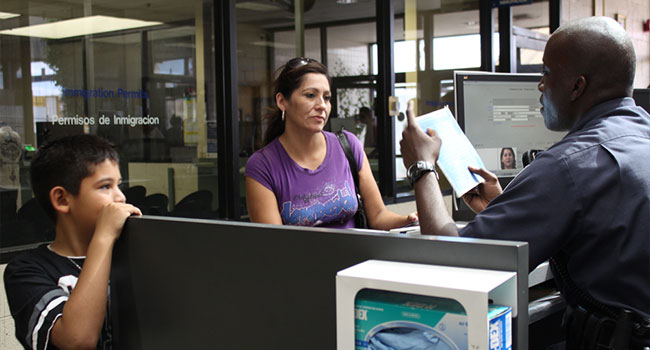
Federal Court Rules That Warrantless Device Searches at Airports, Ports of Entry Violate Fourth Amendment
Under the terms of the ruling, border agents must demonstrate “individualized suspicion” of international travelers before officials can seize and search an electronic device.
- By Haley Samsel
- Nov 14, 2019
Warrantless government searches of phones and laptops of international travelers at airports and American ports of entry are violations of the Fourth Amendment, a federal court in Boston ruled on Tuesday.
In 2017, the American Civil Liberties Union and the Electronic Frontier Foundation filed a lawsuit on behalf of 11 people whose devices were searched without warrants or “individualized suspicion” as they attempted to enter the United States. Ten of the travelers were American citizens, and one was a permanent U.S. resident, The Associated Press reported.
The court decision comes as the number of device searches at ports of entry has increased significantly. In 2018, the ACLU found that the federal government conducted more than 33,000 such searches, which was nearly four times the number of searches in 2015.
While the federal government has called the searches a crucial method to protect Americans from international and domestic threats, the ACLU and other advocacy groups have argued that they violate the rights of international travelers. Under the ruling, border officials would have to demonstrate “individualized suspicion of contraband before they can search a traveler’s device,” according to the ACLU.
“This ruling significantly advances Fourth Amendment protections for the millions of international travelers who enter the United States every year,” Esha Bhandari, staff attorney with the ACLU’s Speech, Privacy, and Technology Project, said in a statement. “By putting an end to the government’s ability to conduct suspicionless fishing expeditions, the court reaffirms that the border is not a lawless place and that we don’t lose our privacy rights when we travel.”
In previous statements about the lawsuit, the Department of Homeland Security said that all travelers, regardless of citizenship status, was subject to search by customs officers. They argue that important evidence of human trafficking, terrorism and intellectural property rights violations have been discovered as a result of the searches, according to the Associated Press.
However, the ACLU and other critics say that DHS officials’ targeting was too broad because officers were not only searching laptops and phones of targeted individuals but their associates, friends and families. Other searches were random, according to the DHS.
“This is a great day for travelers who now can cross the international border without fear that the government will, in the absence of any suspicion, ransack the extraordinarily sensitive information we all carry in our electronic devices," Sophia Cope, EFF senior staff attorney, said in a statement.
U.S. government officials have yet to make public statements on the ruling or if there are plans to appeal.
About the Author
Haley Samsel is an Associate Content Editor for the Infrastructure Solutions Group at 1105 Media.